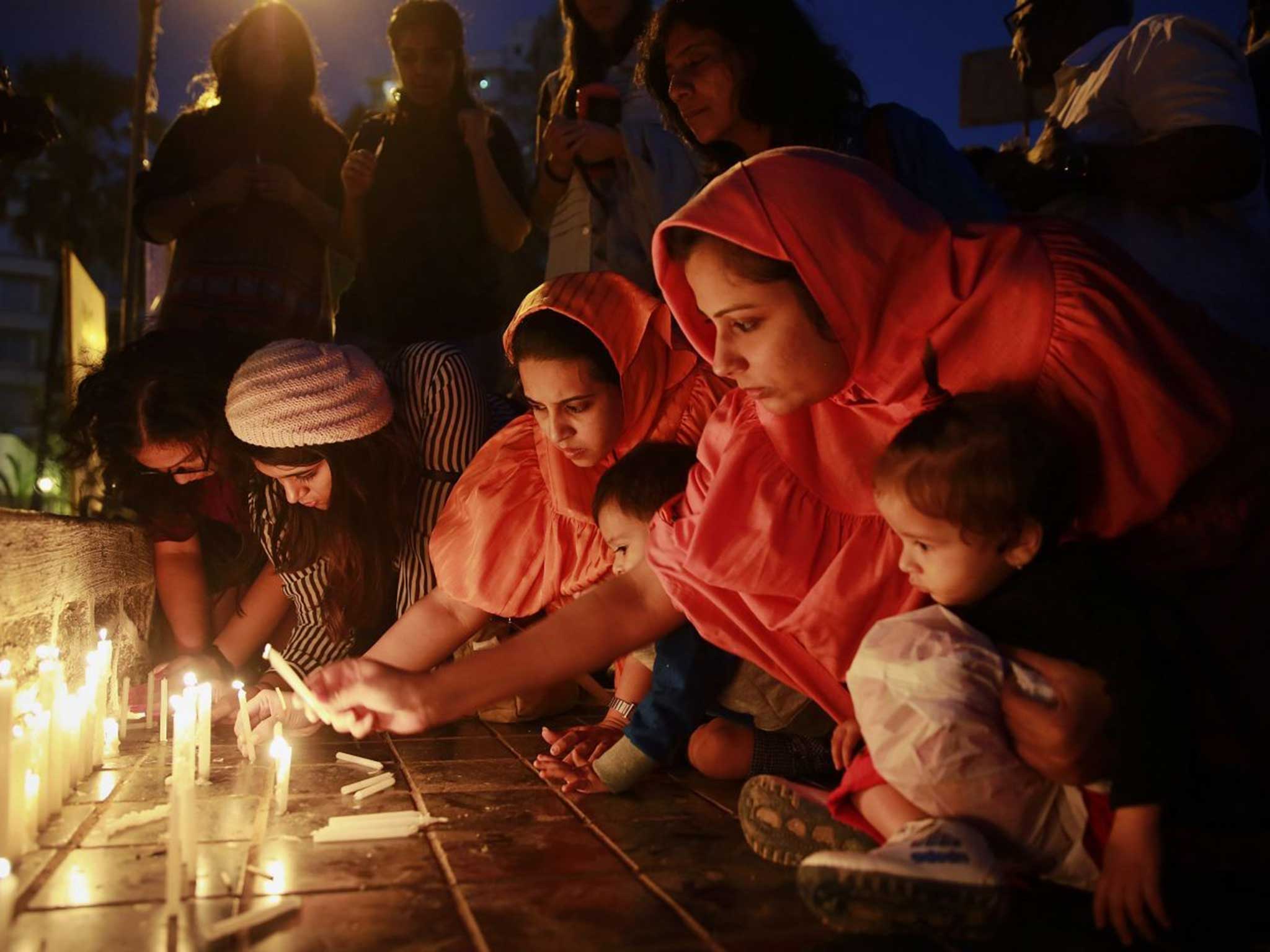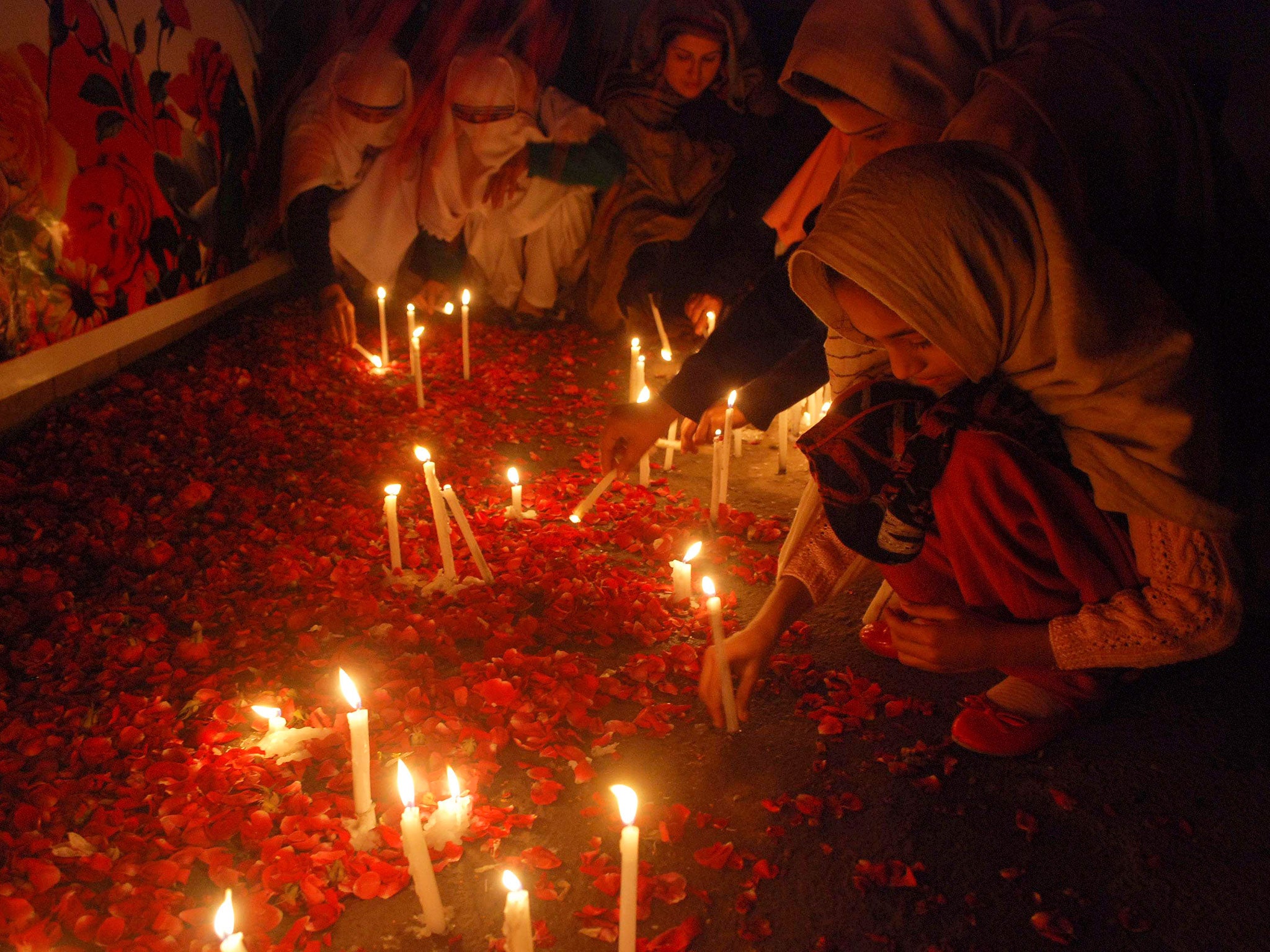Peshawar school attack: When will the majority of Pakistanis stand up to those who think it is OK to kill 130 children?
Ninety per cent of the population are Muslims – not Islamists, but violent intimidation is a frighteningly powerful force


Your support helps us to tell the story
From reproductive rights to climate change to Big Tech, The Independent is on the ground when the story is developing. Whether it's investigating the financials of Elon Musk's pro-Trump PAC or producing our latest documentary, 'The A Word', which shines a light on the American women fighting for reproductive rights, we know how important it is to parse out the facts from the messaging.
At such a critical moment in US history, we need reporters on the ground. Your donation allows us to keep sending journalists to speak to both sides of the story.
The Independent is trusted by Americans across the entire political spectrum. And unlike many other quality news outlets, we choose not to lock Americans out of our reporting and analysis with paywalls. We believe quality journalism should be available to everyone, paid for by those who can afford it.
Your support makes all the difference.The school kids of Peshawar headed back to school – not to study, their school being in no condition to take them back yet, but to demonstrate their grief and indignation at the slaughter of their classmates.
As they did so, they could take comfort in worldwide waves of horror and sympathy and support. On Wednesday night, for example, thousands attended a candlelit vigil in London’s Trafalgar Square, organised by Pakistanis studying in London. But there were exceptions, too. Deeply worrying ones.
It was noticeable that no condemnations of the massacre issued from authoritative sources in Saudi Arabia or elsewhere in the Arab world. This deafening silence doubtless bolstered the theological confidence of the spokesman for the Pakistani Taliban, Umar Khurasani, who claimed that the massacre was consistent with the behaviour of the Prophet Mohammed.
Referring to the massacre of 900 Jews in 627 AD on Mohammed’s orders, he said: “Prophet Mohammed ordered only those children be killed whose pubic hair has appeared.” He said those who attacked the school faithfully followed the actions taken by the Prophet during wars.
What is striking is the contrast between the vehement denunciations of the massacre across the Pakistan political spectrum and the pious claims of Khurasani. Here we see encapsulated the mutual hostility and incompatibility of the forces that have threatened to rip Pakistan apart practically since its creation.
Considering their artificiality, both Pakistan and India have made it through their first six decades of independence remarkably well. That’s because imperial India was fashioned by an alien power permanently alert to the threat of disintegration, and with a simple answer to it: a formidable army with bases in every town, undergirded by the steel frame of the bureaucracy.
These strong assets, carried over into the independent successor states, lent both Pakistan and India sufficient stability for them to become viable countries. And for all their flaws and failings, both continue to receive the loyal support of most of their populations. Meanwhile the only out-and-out Islamist parties in Pakistan, Jamiat Ulema-e-Islam and Jamaat-e-Islami, struggle to get the sort of poll ratings enjoyed by the Green Party in the UK, despite decades of trying.
They received a surge of support after the US invasion of Afghanistan in 2002, but this dissipated almost at once. The great majority of Pakistanis are Muslims, many of them very devout, but like Christians in Britain they vote as if their religion were a matter between themselves and their God.

But democratic support is irrelevant to the ambitions of the Islamists, who claim to be acting in accord with the will of Allah. And they help Allah to get his way by a combination of strategies, which include spectacular terror and the creation of Islamist-ruled enclaves such as the one in the Swat Valley where Malala Yousafzai and her family lived, and in North Waziristan which the Pakistani army has been struggling since June to claw back into its control.
The Taliban also run a parallel, Mafia-like justice system which, given the sluggishness of official justice, has obtained increasing support even in places like Karachi where the Taliban’s profile is insignificant.
Their other way of imposing their will is, as in the West, through intimidation and assassination; making it too dangerous for all but the bravest or craziest to cross them. We have witnessed the success of this approach in Europe, increasing in momentum and effectiveness since the fatwah against Salman Rushdie’s The Satanic Verses and all that followed.

It’s not much remarked on, but today it is hard to imagine questions about Islam being aired in Britain’s mainstream media in tones either of levity or outright hostility. And if intimidation works in Britain, it does so a hundredfold in Pakistan, where violence is much closer to the surface of life.
Despite dire predictions and atrocities like Tuesday’s in Peshawar, Pakistan does not appear to be slipping into the category of failed states like Somalia or Libya. This is a blessing for the world at large as well as for its own region, and not only because it possesses a nuclear arsenal. But it is not good enough.

If well over 90 per cent of Pakistani voters, however pious they may be, disdain to give their support to the fanatics in the privacy of the polling booth, how can they be persuaded to stand up for their state in the face of people who believe that wiping out 130 children is okay as long as they have all reached puberty?
Join our commenting forum
Join thought-provoking conversations, follow other Independent readers and see their replies
Comments